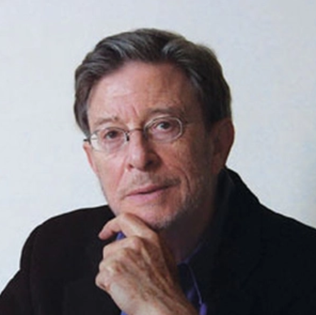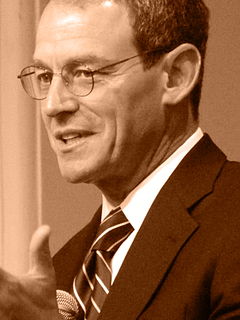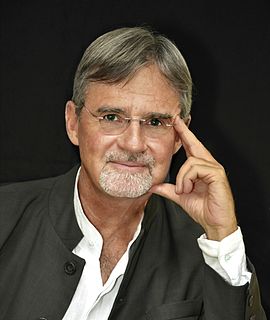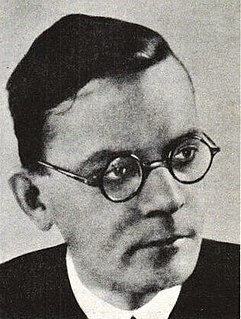A Quote by Russell Baker
Those who remember Washington's cold war culture in the 1980s will recall the shocked reactions to Reagan's intervention. People interested in foreign policy were astonished when in 1985 he met alone at Geneva - alone, not a single strategic thinker at his elbow! - with the Soviet Communist master Gorbachev.
Related Quotes
Reagan took an approach to the Cold War dramatically different from any other US President. To wit, he thought we should win. This was a fresh concept. At the time, it was widely ridiculed as a dangerous alteration of US policy. Only after it worked was Reagan's dangerous foreign policy recast as merely a continuation of the policies of his predecessors.
National Defense A strong USA defense brought down the Soviet Union. It was Ronald Reagan - first in a speech at Notre Dame University in May 1981, then his 'Evil Empire' speech of March 1983 - who most eloquently declared communism's imminent demise. Reagan was right. And even Soviet officials attribute Ronald Reagan's rhetoric and foreign policy to bringing down that 'evil empire.' By Christmas Day, 1990, the Soviet Union ceased to exist. Liberals wished it were other things.
Ronald Reagan was one of our great foreign policy Presidents. He did not come from the Senate. He did not come from the foreign policy world. He was a governor, but his resolve, his clarity of purpose, his intelligence, his capacity to deal with complex issues and solve tough problems served him extremely well, and if I were elected President, I hope I could rely upon those same qualities.
Russia, despite its heavy flirtation with capitalism and some quite unsavory oligarchs, is still building its foreign policy on the Soviet ideals of internationalism, solidarity and logic. And even domestically, President [Vladin]Putin is slowly, step-by-step, restoring many important Soviet achievements that were torpedoed by a nitwit, and one gangster - [Mikhail] Gorbachev and [Boris] Yeltsin.
In the past, foreign intervention was obviously a major problem. Foreign domination, or if not domination, interference. But that has ended. There is no foreign domination; there is minimal foreign interference. The Cold War has ended. The Soviet Union no longer exists. The United States is showing minimal and diminishing interest in the Muslim world. They now have to confront their own problems. The old excuses are gone. The old justifications are gone and therefore the anger of people is turning increasingly against their own rulers.
We were really helped when President Ronald Reagan came in. I remember non-commissioned officers who were going to retire and they re-enlisted because they believed in President Reagan. That's the kind of President Ronald Reagan was. He helped our country win the Cold War. He put it behind us in a way no one ever believed would be possible. He was truly a great American leader. And those of us in the Armed Forces loved him, respected him, and tremendously admired him for his great leadership.
Strategic thinkers were naturally rattled to find this outsider fooling around with their work. They had been thinking strategically when Reagan was just another movie actor playing opposite a chimpanzee, for heaven's sake. They think Reagan is too naive, too innocent, to grasp the intellectual complexities of cold war strategy.
In 1945, at the beginning of the Cold War, our leaders led us astray. We need to think of the Cold War as an aberration, a wrong turn. As such, we need to go back to where we were in 1945 - before we took the road to a permanent war economy, a national security state and a foreign policy based on unilateralism and cowboy triumphalism.
An old Russian woman goes into Kremlin, gets an audience with Mikhail Gorbachev and says, In America anyone can go to the White House, walk up to Reagan's desk and say, 'I don't like the way you are running the country.' Gorbachev replied, You can do the same thing in the Soviet Union. You can go into the Kremlin, walk up to my desk and say 'I don't like the way Reagan is running his country.'
I have looked at public opinion polls in France in the late 1940s and early 1950s during the height of Marshall Plan aid. They had a very negative attitude towards the United States then. There were negative attitudes towards the United States because of Vietnam. There were negative attitudes about the United States when Reagan wanted to deploy intermediate range ballistic missiles. I don't think the president should base his foreign policy on American public opinion polls, let alone foreign public opinion polls.































